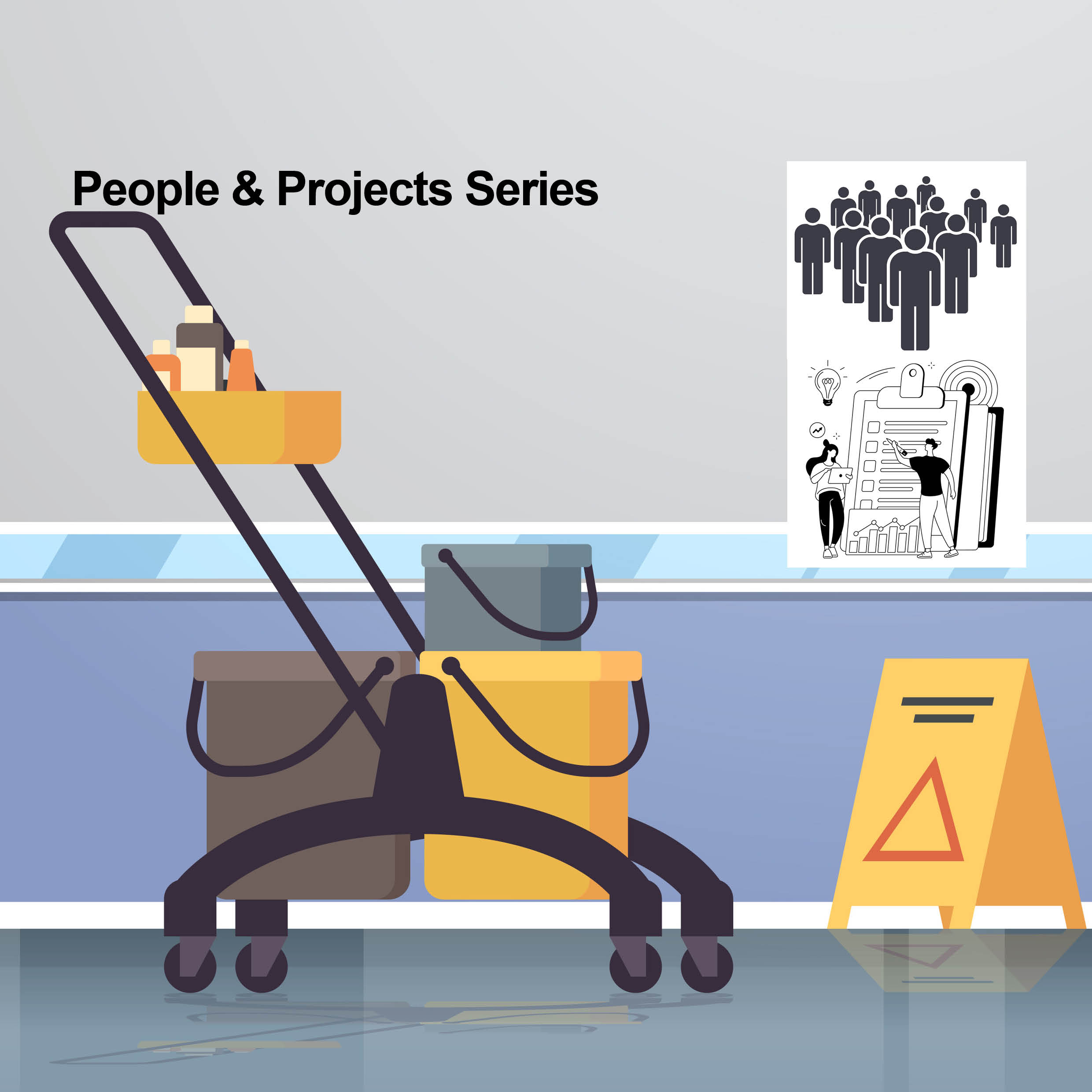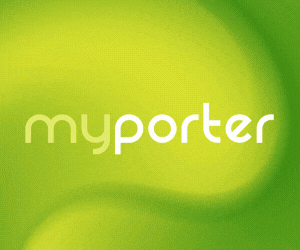This is a report of how the 20 teams that comprise the housekeeping department responded to COVID-19 from the moment the first positive patients presented in the Trust’s community hospitals and mental health recovery units. As clinical services were prioritised to respond to the pandemic, the shape of the estate quickly changed. Housekeeping services faced several key challenges and had to adapt, notably working with changing Infection Prevention and Control (IPC) guidance and Standard Operating Procedures (SOPs).
Housekeeping staff work to procedures as guided by IPC teams, and from the onset many of the cleaning procedures required updating to effectively manage the virus. New SOPs were introduced across a wide range of cleaning-related activities to include:
• Areas occupied by COVID-19 confirmed/contact patients. These areas required a significant increase in cleaning regimes, including the order in which tasks were undertaken. Regular two-stage cleaning (detergent wipe, followed by an alcohol wipe) was required and extended to include additional measures relating to handling and processing both waste and dirty linen. Curtain changes were also required once rooms/cubicles were vacated.
• Enhanced cleans in offices, corridors, receptions. This involved the use of detergent and bleach. Previously, only supervisors or allocated staff handled chlorine-based products, but following appropriate training, this was widely rolled out across housekeeping staff.
• Hot desk areas in non-clinical spaces. Staff unable to work from home were responsible for cleaning their workstations upon arrival and departure. Guided by IPC, Trust-approved wipes were made available via housekeeping teams to support them in this activity. Kitchens, toilets and touch point cleaning were prioritised.
The new cleaning regimes are labour-intensive, and staff become physically exhausted due to the continuous effort required, particularly when working in areas actively managing COVID-19 outbreaks. The mental health challenge of working in such intense environments is also acute, although the Trust notes an improvement in camaraderie. Staff are there for each other, organisational and managerial barriers have diminished and teams work together to actively support each other.
• Additional training to support safe working practices. As guided by IPC, all housekeeping staff were required to wear a face mask, visor, apron and gloves, and the use of this equipment required training to ensure all were competent in its use and working safely.
Many staff also received further training to support working at height [curtain changes] as well as the use of new cleaning products and for some new equipment. Many accepted these new challenges and were keen to play their part in the fight against the virus.
The workforce across the NHS has been severely impacted by the pandemic. At first, there was fear and anxiety in abundance, national guidance changed at an alarming rate, reinforcing both the complexity and the ignorance that existed across the country. Housekeeping team members at Herefordshire & Worcestershire listened to news reports and many were forced into new living and lifestyle arrangements, bringing additional pressures. This did not detract from the determination of staff to do the very best they could to remove the virus from wards and clinical settings. Teams showed great strength and demonstrated real teamwork and solidarity.
Soon after, shielding and risk assessments, isolation and for some infection became the new normal, which meant some staff were unable to work at all, or needed to work in restricted areas. Whilst the government talked about a second and subsequent waves, for staff at the Trust the tsunami just kept rolling. No-one could see the virus, but just because it hadn’t been diagnosed didn’t mean it wasn’t there. Housekeeping teams remained committed and willing to keep doing their best.
As time progressed the department faced increasing staffing pressures, which remain today; general staff absence, COVID-19 positive, contact or carer responsibilities plus annual leave and leavers all increased the pressure on remaining staff which was further compounded by the national recruitment challenge. However, the spirit and commitment of local teams was not beaten.
At times it became necessary to review how some services were delivered, and in accordance with IPC a number of adaptations were instigated. Where clinical services changed, housekeeping services were ‘stepped down’ and staff redeployed to support other areas, which involved some staff travelling across county lines. Some were required to work in restricted areas to prevent cross-infection and staff worked overtime/additional shifts to support the service, many at short notice to ensure patient flow was not disrupted.
In addition, a change to the linen supplier in April 2021 bought with it further challenges. The service was operationally managed by housekeeping supervisors, and it wasn’t long before numerous quality issues were reported across multiple sites, along with late/missed deliveries and failed collections. Despite escalation, these operational issues continue, and add to the pressures on the housekeeping teams. They have been addressed by units working collectively to manage stock levels and continuing to collate feedback to inform contract discussions.
In April 2020, the Facilities team also welcomed new housekeepers and caterers from Herefordshire following the Trust taking over mental health services. The pandemic added a new dimension to the transitional period because IPC-led SOPs had to be introduced to new teams, new sites and new services quickly. Facilities management worked closely with both IPC and the new housekeeping teams to identify service-critical changes required and lead on communication, ensuring systems and training were in place to manage the transition. New equipment was purchased (cleaning trolleys) and old chemicals were phased out and replaced with Trust-approved chemicals. More recently, the commencement of a major capital investment scheme in the inpatient unit has brought disruption to scheduled services and put the teams under further pressure whilst contractors are on site.
Outcomes
This collective experience has resulted in various service improvements. The pandemic impacted all staff and consequently many have further developed their skills and been able to improve the service they provide. Swabbing work areas meant the workforce took accountability and felt empowered. They also become more resilient, and have adopted flexibility in working hours, places of work and working procedures. Team working and a strong team spirit has developed. Cleaning standards have improved, as a result of the new SOPs being layered with stages of cleaning to guarantee an effective clean, which in turn has improved the attention to detail across the service.
Changes to the SOPs have resulted in more staff being trained in some equipment and the team are now better placed to meet the changing demands of the service. The pandemic has resulted in the increased use of steam cleaning. When supporting the high volume of curtain changes, where approved by IPC, steam was used as an alternative to laundering, enabling rooms to be turned around more quickly to support patient flow.
Communication has also improved. A directive leadership style was used at the beginning of the pandemic to relay clear instructions of actions required to keep staff and patients safe. Over time the leadership style was relaxed, and a more transformational style introduced, which has led to improved communication between the management team and therefore operational staff.
Good communication to all fostered solidarity and encouragement and also provided direction and autonomy with clear goals and focus for housekeeping teams. Forums encouraged staff to talk freely and discuss professional and personal concerns. That work and personal life have overlapped was accepted and supported with a renewed focus on mental health and wellbeing. A wide-ranging network of communication channels aimed at ensuring the workforce felt supported and managers/leaders were accessible. As part of the ward teams, housekeeping staff were able to discuss operational pressures, ask for help and gain information about virus-related activities impacting their service. Communication between staff within teams has also improved; the invisible divisions have reduced and staff are more engaged in supporting each other. In some instances, this has positively changed the dynamics of the team.
The service improvements have had, and will continue to have, an impact, ensuring an effective, safe service is offered to all patients and site users. Housekeeping now has a solid foundation on which to build for the future, with four key aims:
• Continue to nurture the workforce to encourage ‘home grown’ talent so that experience and knowledge is kept within the Trust.
• Continue to break down barriers of communication across teams.
• Continue to invest in resources to support the service.
• Continue to offer a safe service using methods which are efficient and effective.
The housekeeping teams were nominated for one of HEFMA’s 2022 awards.









